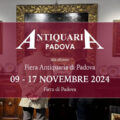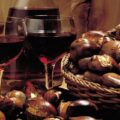” Befana comes at night with her broken shoes, her Roman style hat: viva, viva the Befana!”
Pinza, or pinsa in Venetian dialect, is a traditional peasant cake made during the Epiphany with stale bread, milk, eggs, sugar, apples, dried figs, sultanas and honey. Like most traditional dishes, the recipe actually varies from place to place, and the ingredients are certainly richer today than they were originally.
In the past, on the eve of Epiphany, in the Veneto region, high piles of branches and maize canes were prepared. The youngest member of the household would then light a bonfire using a half-burnt piece of wood, kept from Christmas night. It was the night of the fires, the night of the ‘Panevin’.
This ritual is linked to the sun and the fire cult of pre-Christian civilizations and it was an exorcism against man’s fear of losing the sun and the earth’s fertility during the winter solstice. A prediction of the year that just begun: “Se le va a garbin, tiol su el saco e va al molin. Se le va al furlàn, tol su el saco e va a pan” (if sparks go towards the sunset it will be a good sign, if they go towards the east it will be sad). For this reason, sparks were thrown into the air with the forks.
This ritual was accompanied by a moment of sharing by eating pinza veneta, traditionally cooked under the ashes, and by drinking a few ‘gotti’ (glasses) of red wine.
“Qua pan qua vin, qua lane e lin, qua vedei e porzei, e la grazia di Dio sui caretei” (here bread here wine, here wool and here linen, here calves and pigs, and the grace of God on the carts) or again “Pan e vin, la pintza sul larin, la luganega su par el camin” (bread and wine, pinza on the fire, luganega up the chimney).
The sharing of pinza veneta, like that of bread, symbol of hard work, has the same meaning as the exchange of gifts. A part was left on the fireplace by the children and reserved for the Befana, who would pass by around midnight to fill the stockings hanging from the chimney hood.
The tradition remains and with the Epiphany (which takes all festivities with it, ed.) bakeries and pastry shops continue to offer Pinsa, just as the tables all over the Veneto present this traditional country cake. As for the stake, there is now the long-awaited “Vecia” (old woman) made of wood, which is burned in all the squares to celebrate the Epiphany!
At the AbanoRitz the Epiphany is a beginning, the beginning of a new year, rich in events, festivities and offers:











